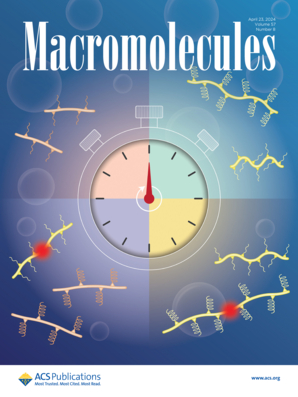Atom Transfer Radical Polymerization of Hydroxy-Functional Methacrylates at Ambient Temperature:? Comparison of Glycerol Monomethacrylate with 2-Hydroxypropyl Methacrylate
Abstract
The homopolymerization of two hydroxy-functional monomers, glycerol monomethacrylate [GMA] and 2-hydroxypropyl methacrylate [HPMA], has been investigated using ATRP chemistry in aqueous, methanolic, or water/methanol solution. In methanol, both monomers are polymerized to high conversion with reasonably good control (final polydispersities are 1.30 and 1.09 for GMA and HPMA, respectively) within a few hours at 20 °C. “Self-blocking” chain growth experiments indicate good living character under these conditions. Addition of water leads to much more rapid polymerizations in both cases, but high polydispersities (e.g., Mw/Mn = 1.90 for a 50/50 water/methanol mixture) were always obtained with GMA. With HPMA, relatively low polydispersities (Mw/Mn = 1.17) can be achieved under the same conditions. Several new diblock copolymers were synthesized using poly(alkylene oxide)-based macroinitiators. One of these hydrophilic?hydrophobic diblocks proved to be thermoresponsive and aggregated reversibly in aqueous media.





